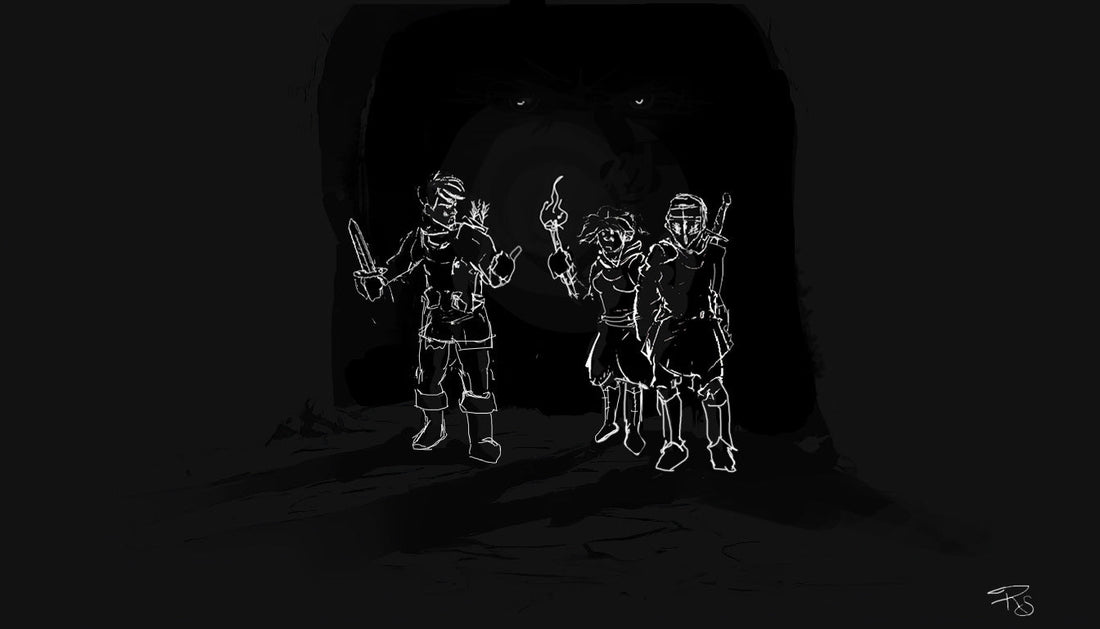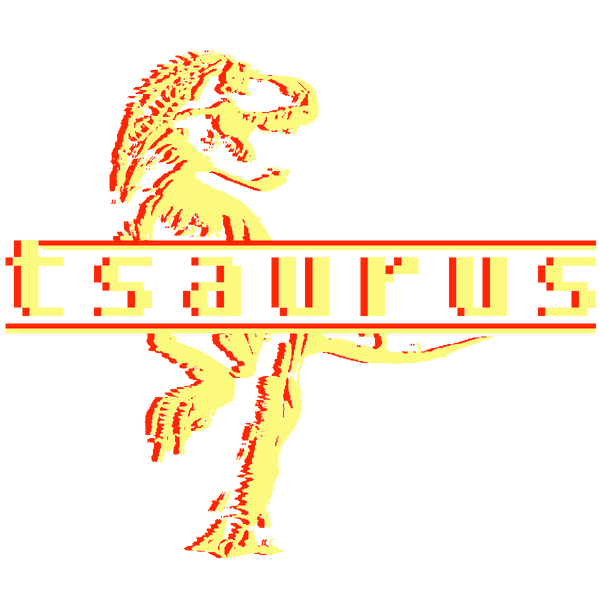
The gods don't call the unprepared.
Share
In the hero's journey there are no mistakes.
If you're on the quest, it’s because you’re meant to be.
Not because you're worthy of the treasure, or the most capable of slaying the dragon—but because the road ahead will forge you into the hero that is.
In mythology, the hero’s call to adventure never waits until the hero feels "ready."
Frodo wasn’t ready for Mordor. Odysseus wasn’t ready for ten years of storms and shipwrecks. Peter Parker wasn't ready for the endless animal-themed villains.
No one is ready to face the dragon the first time they see its shadow. (The 5th edition of Tomb of Annihilation starts at level 1, like why would first level adventurers be the ones to stop the Death Curse in ~2.5 months? Maybe a bad example, but that totally comes to mind.)
But the gods, the universe, the story calls.
Because answering the call is what makes you worthy of the treasure.
In RPGs, it’s easy to think the game takes place inside the dungeon—the room-by-room struggle, the boss fights, the loot tables.
But the real game is bigger.
The real game is about answering the call, again and again, session after session, year after year (hopefully.)
It’s about realizing that even when your campaign ends, the story—the infinite game—keeps going.
A combat is a finite game.
A dungeon is a finite game.
Charming your way into a meeting with a noble is a finite game.
Keeping your group together and making lasting memories is an infinite game.
Infinite games have different rules
You jump into D&D to clear dungeons, level up, claim treasure.
Maybe you notice, maybe not—something magical happens.
You remember the journey in the game the same way you remember real life.
Not as an “imagined” story—but as a felt experience, locked into your brain like the memory of your first concert, your first heartbreak, your first small victory that nobody else noticed.
Studies show that emotionally charged stories—real or imagined—trigger the same parts of the brain.
That’s why you say, “Remember that time we were heading to that one island and the young kraken came up to recruit us but our ranger started firing bolts at his tentacle? We were only level 3…”
Not, “Remember that scene you described?”
Because to you—it happened. It doesn’t feel like a story someone told you. It feels like something you lived.
Maybe you laugh when you tell the story. Maybe it still stings. Either way, it's yours.
The Fellowship of the Ring wasn’t just about carrying the Ring.
It was the jokes around campfires.
The fear in Moria.
The grief for Boromir.
The quest was finite.
The fellowship was infinite.
It’s the shared story, written into your memories as if it were real—because in the ways that matter, it is.
And when you see it clearly, when you feel it happen—you realize: This was never a finite game.
It was never just about winning. It was always about continuing.
You’re not just running encounters. You’re weaving a culture.
One man cast a lingering spell of awe and wonder, of magical innocence overcoming evil, of simple courage conquering fear – he gave us the legend that will live forever in our minds.
J.R.R. Tolkien triumphed with the perception that a single dream is more powerful than a thousand realities.
Come to Middle-earth, a world beyond the furthest reaches of your imagination.
—from the 1978 Lord of the Rings movie poster
Inside jokes. Shared scars. Whispered codewords.
They’re not just funny memories—they’re identity markers. The bonds that hold the table—and the story—together.
They're the myths of your table, the founding stories that bind your group together.
Just like Odysseus’ journey wasn't remembered for its efficiency, your campaigns won't be remembered for how quickly the dungeon was cleared.
They’ll be remembered for what you endured together—and what you became along the way.
The Wheel of Time says it simply: “The wheel weaves as the wheel wills.”
Strength and cleverness matter.
But the bonds—the shared memories, the in-group language, the feelings that stick with you—that’s what gets you through the storms.
At your table, it might sound like:
- "Remember the Kraken Betrayal?”
- "Sir Barkington would never forgive you for that one."
- "We haven't forgotten that time you charmed the guards into escorting you out and left us there to fend for ourselves!"
When you build those memories, you're not just running games. You're forging a fellowship. One story, one screw-up, one unexpected triumph at a time.
Crafting a Legacy
In Arthurian legend, Excalibur wasn't just a sword.
It was a story—how it was drawn from stone, how it was given, how it was passed from one king to the next.
The sword mattered—but the meaning behind holding the sword mattered more.
Your table is no different.
The tales that grow around it—the time the treasure was stolen, lost, defended, passed down.
How do you craft legacy at your table?
-
Reward continuity over conquest:
Make the world remember their deeds, even if they don't. Celebrate callbacks, running jokes, scars from past campaigns.
-
Build the mythology, not just the encounter:
Let the weapons earn names. Let cities sing about the group’s victories (and failures). Make their story bigger than the map.
-
Plant the seeds of legend:
When an npc hints at “the heroes who subdued the Kraken of the Western Edge”—that's your character's future they're talking about.
It’s the same reason Critical Role exploded.
It wasn't polished roleplay with amazing production value.
It was because they brought you into their shared history—scars, jokes, songs, echoes, lore.
Fans didn’t just watch a show. They joined a community.
The best brands know this too—
Apple. Harley Davidson. Dungeons & Dragons (tbd!)
They’re not selling tools. They’re selling entry into a living story.
So don’t just aim for another session, another level-up, another kill.
Aim for legend. Aim for stories that get told around tables long after the campaign ends.
Because the gods don’t call the unprepared. They call the ones who were always meant to forge something that lasts.
-Rex
